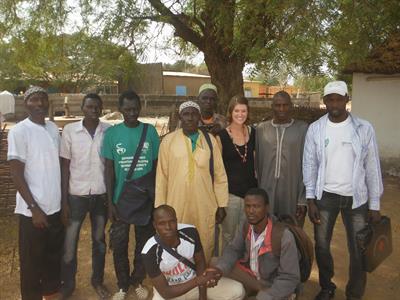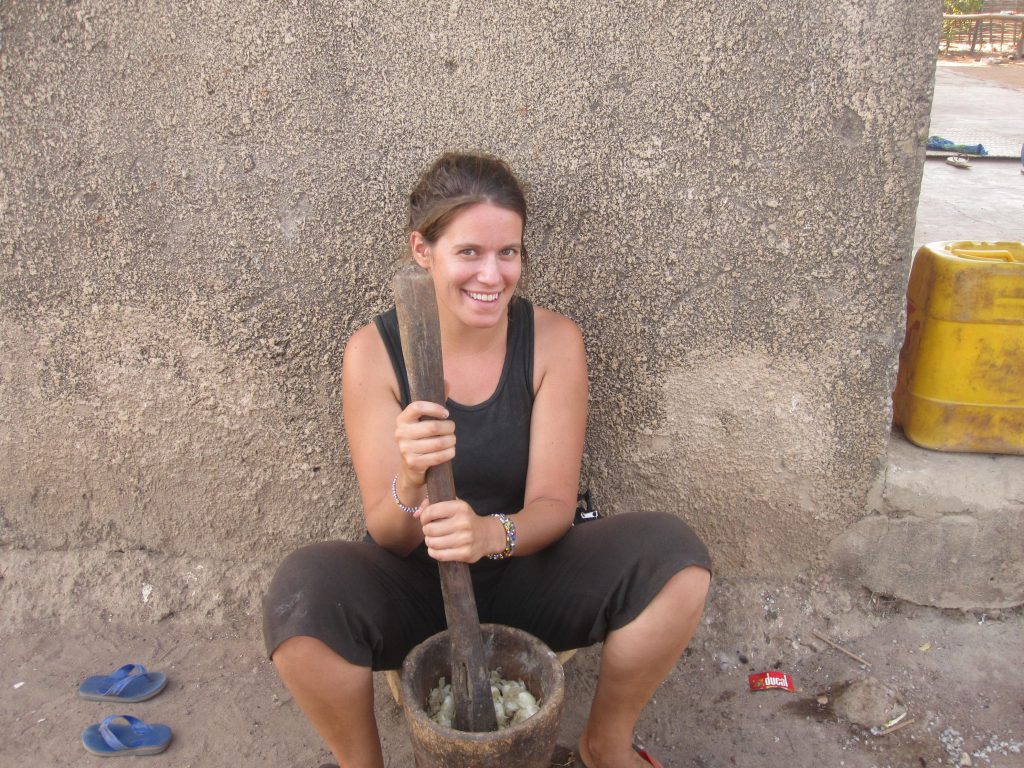In 2012, Peace Corps volunteer Leah Moriarty was wrapping up her time in Saraya, Senegal and getting ready to pass the baton to her replacement, Annē Linn. Now, almost a decade later, they both are malaria technical advisors with the U.S. President’s Malaria Initiative (PMI), Leah at the Centers for Disease Control and Prevention (CDC) and Annē at USAID.
For Leah and Annē, their time in Senegal, living in the heart of communities, set them up for success at PMI. They are among 30 PMI staff members at USAID and CDC who are returned Peace Corps volunteers who served in 19 countries around the world. The on-the-ground and practical experience they received from serving two or more years abroad is valuable to the work PMI does.
“There is no way to learn more about the challenges communities face like living in a hut, learning the language and getting bit by the same mosquitos as a neighbor,” says Leah.
“Building relationships and serving on the front line with community health workers and health facility staff inspired me to dedicate a career to collaborate on a different level, be innovative and solve global health problems.”
By working in health centers and observing everything from case management to data collection, Leah and Annē gained an understanding on challenges and strategies on how to overcome them.
Leah and Annē took on a variety of projects during their Peace Corps service, from cervical cancer screenings to peer education around harm reduction with gold mining. Projects focusing on malaria ultimately led them to their current careers at PMI.
While in Senegal with the Peace Corps, Leah assisted with the distribution of bed nets to prevent malaria. Health workers and volunteers worked with partners on the campaign to help communities understand the importance of using bed nets correctly and consistently. Leah established great relationships with the district health center, not only benefiting her during her time but also setting a foundation for Annē who was soon to follow.
Annē built on Leah’s work, participating in net distributions and the first region-wide seasonal malaria chemoprevention campaign. At the time, she also led a pilot study that focused on a new approach to malaria testing and treatment for communities with limited access to health services.
“Having field experience is super helpful in understanding the questions to ask when working at the level of PMI,” says Annē. “I also had the experience of seeing many of my community members suffer from malaria, and even losing a little neighbor, so now even though I work primarily on malaria data, there is personal meaning behind those numbers that motivates my work with PMI.”

Community health workers from the malaria case management pilot study in Senegal pose with Annē, returned Peace Corps volunteer.
Since their Peace Corps service, both Leah and Annē have kept in touch with those they worked alongside in Saraya. On Leah’s first trip to Senegal with PMI, she walked into a malaria training course to find one of her closest friends from the Saraya health center sitting was a student in the class. This moment solidified her excitement for working with PMI.Both Leah and Annē are grateful to be able to continue the work they started alongside the people who shaped their experience abroad.
Though they only spent several days together in Saraya in 2012, they now enjoy working together at PMI. “It’s so fun to now be working with Leah, or as she was known in Saraya, ‘Mbamoussa,’ at PMI,” says Annē. “It kind of feels like we’ve been in a movie where we were living parallel lives in different times–and now our timelines have merged.”

